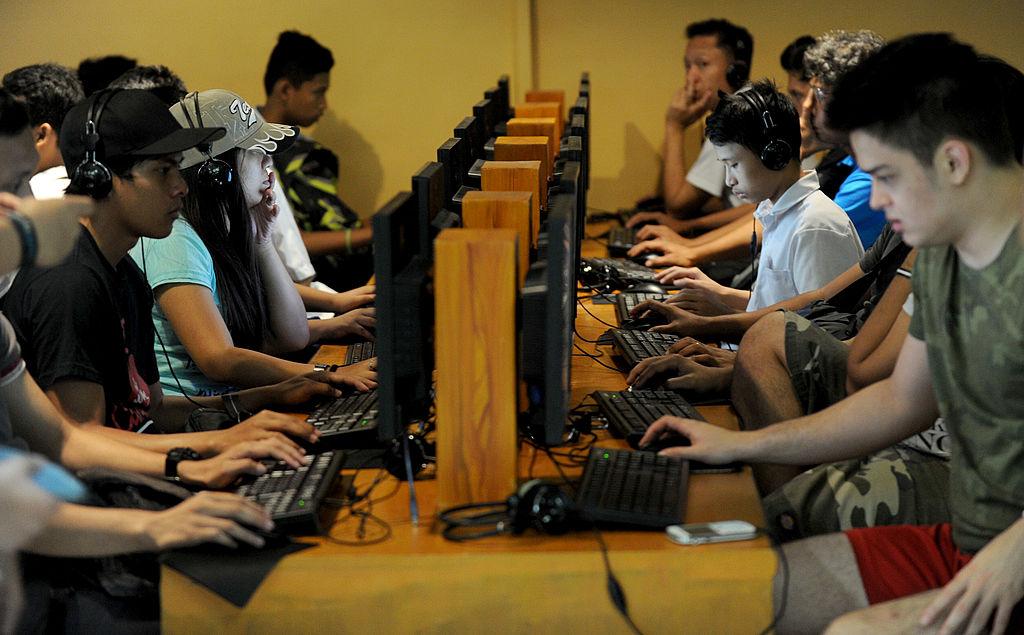Southeast Asia on the forefront of disinformation for profit and power
Posted By Anastasia Kapetas on May 20, 2021 @ 06:00

Some of the most egregious examples of disinformation campaigning in recent times have come not from shadowy state operatives but from mainstream political parties. Politicians and their parties in Southeast Asia have long been ahead of the curve, argued Nicole Curato, associate professor at the University of Canberra’s Centre for Deliberative Democracy and Global Governance, in a panel discussion on disinformation in the region at ASPI’s grey zone and disinformation masterclass.
‘Before Trump and Brexit, the Philippines was disinformation patient zero’, she explained. And early disinformation innovations have evolved. Once aimed at mass audiences through the use of ultra-popular online influencers, political disinformation campaigns have refined their targeting. They now use ‘nano influencers’ with fewer than 10,000 followers for political product-placement.
Curato used an example from her recent research into disinformation operations run by opposition parties in the Philippines, which are using this kind of niche audience segmentation to run racist anti-Chinese narratives in an effort to damage President Rodrigo Duterte, who has been known for his close ties to Beijing.
Curato noted that she’s received criticism for calling out opposition tactics against Duterte, given the brutal human rights record of his regime. But she believes it’s important to shine a light on information abuses on both sides.
‘To understand why disinformation in Southeast Asia is so widespread, you have to understand the particular political economy of the region’, said Curato. There’s a huge oversupply of cheap labour and at the same time, Southeast Asia is at the core of the global outsourcing industry, and the skills of these workers are highly transferable to disinformation operations. For such a worker, a disinformation side-hustle is an easy way to augment a low income.
But who’s coordinating these gig workers for disinformation campaigns? According to a recent study [1] on the disinformation ecosystem in the Philippines, elite advertising and public relations agencies conceptualise campaign narratives and then organise influencer and troll armies to deploy messages. Disinformation is a huge source of profit for the PR industry.
Fellow panel member and Southeast Asia specialist at the Australian National University, Ross Tapsell, agreed, pointing to Malaysia, where in 2013 political parties used online influencers or ‘cybertroopers’ to influence the outcome of that year’s national election. This activity has now consolidated into a more permanent industry throughout the region, with ‘trolls’ prominent in the Philippines and ‘buzzers’ in Indonesia.
The now-notorious firm Cambridge Analytica also angled for a large slice of campaign money from the United Malays National Organisation party with the pitch ‘we won it for Trump’. They were unsuccessful in winning a contract in part because UMNO already had a domestic social media campaigning capability.
Tapsell noted that Southeast Asians are well known for their high levels of social media engagement. Jakarta was once declared the ‘capital city of Twitter’ with more users than anywhere else on the planet. The Philippines is known as a Facebook nation and Malaysia has some of the world’s highest usage of WhatsApp.
There are some big stakes here for Australia, Tapsell said. For one, this growing and highly profitable industry of dirty information tricks can be mobilised against Australian interests in the region.
Tapsell went on to say that Australia is still figuring out this terrain, giving an example of the Australian government’s handling of an anti-Australian tweet from a Chinese state official. Tapsell said that Australian government departments often focus on specific regional partnerships but sometimes miss the wider narrative formation about Australia and the region that’s happening on digital platforms across Southeast Asia.
He added that the regional prevalence of disinformation is having a hugely destabilising effect on democracy, eroding the capacity of institutions like the media and undermining elections and, potentially, broader social cohesion.
As for foreign networks, disinformation incursions in region have been minimal but there’s clear potential for growth. According to Tapsell’s research, most of the disinformation action emanates from Southeast Asian actors focusing on domestic agendas.
So what can be done? Curato noted that the tech platforms have developed menus of responses, which now include fact-checking, labelling and targeted take-downs of disinformation and inauthentic activity.
From her interviews with members of the disinformation industry in Southeast Asia, Curato said that the response they’re most scared of is the take-down, which means months or years of work down the drain. They also don’t like to be named and shamed. No company likes to be associated with electoral manipulation.
Tapsell added that the take-down approach is effective, but companies like Facebook are selective in what they take down, usually focusing usually on major markets, and have not placed enough emphasis on or hired enough people from Southeast Asia.
Curato agreed that Facebook needs to do a lot better. She’d like to see the disinformation response at Facebook democratised. This means finding a way to bring more user input into disinformation oversight decisions, as well as black-listing PR companies involved in large-scale disinformation production.
Finally, both panellists agreed that the platforms need to better understand and resist attempts by authoritarian actors to use ‘fake news’ laws to silence legitimate opposition in the region. The platforms are now key players in regional geopolitics and need to devote more resources to their growing civic responsibilities.
Article printed from The Strategist: https://aspistrategist.ru
URL to article: /southeast-asia-on-the-forefront-of-disinformation-for-profit-and-power/
URLs in this post:
[1] recent study: http://newtontechfordev.com/wp-content/uploads/2018/02/Architects-of-Networked-Disinformation-Executive-Summary-Final.pdf
Click here to print.